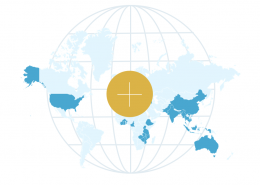SDG 3: Good Health and Well-being
Sadly, good health and well-being are not a matter of course: more than five million children worldwide die before their fifth birthday and too many women still die during childbirth. Common diseases restrict the life expectancy of many people in developing countries because they do not have access to vaccinations, medicine, or potable water. The production of textiles not only requires a lot of water, but involves the use of a large quantity of various chemicals, many of which are hazardous and can considerably affect the health of the workers. During the dyeing and finishing of fabric, 1.5 kilograms of chemicals are used for one kilogram of fabric. Another health-endangering factor is the high level of air pollution, to which textile production contributes proportionately. Respiratory diseases in industrial conurbations have often not yet been systematically recorded, but a departure from coal-based heating technologies in fiber production is aimed at by the goals for reducing greenhouse gas emissions.
Among other things, the Partnership for Sustainable Textiles aims at optimising the chemical and environmental management in the textiles supply chain. Brands, businesses, manufacturers, and the German Federal Government should support their suppliers in making their supply chain management more environmentally friendly. All members have agreed to a list of chemicals that should not be used in the production process. This Manufacturing Restricted Substances List (MRSL) is based on the specifications of the internationally recognized Zero Discharge of Hazardous Chemicals (ZDHC) initiative and is communicated to all producers and business partners with corresponding accompanying information.
A special focus is also on good wastewater management. It can prevent untreated wastewater with impurities and hazardous chemicals from entering the waters and thus indirectly into agriculture and food production. The members of the Textiles Partnership have agreed and committed themselves to comply with minimum standards for wastewater treatment (at least Foundational Standard of the ZDHC Wastewater Guideline). In addition, a group of members is working on:
- addressing knowledge gaps on wastewater treatment and minimum standards,
- developing support tools for companies to better control the often very technical wastewater reports and
- improving the often non-transparent area of wastewater controls through predefined test procedures and control mechanisms at selected suppliers.
With the help of a plausibility check, companies are to be given the opportunity to check the plausibility of the wastewater data quickly and easily. This allows them to quickly uncover falsified report values and initiate appropriate improvement measures. The pilot group intends to share its results with other initiatives to promote an increase in the quality of wastewater management.
Under "Projects worldwide" you find numerous projects of our members, which contribute in different ways to the achievement of the SDGs. If you are interested in a particular SDG, it is best to filter by sector risk.



